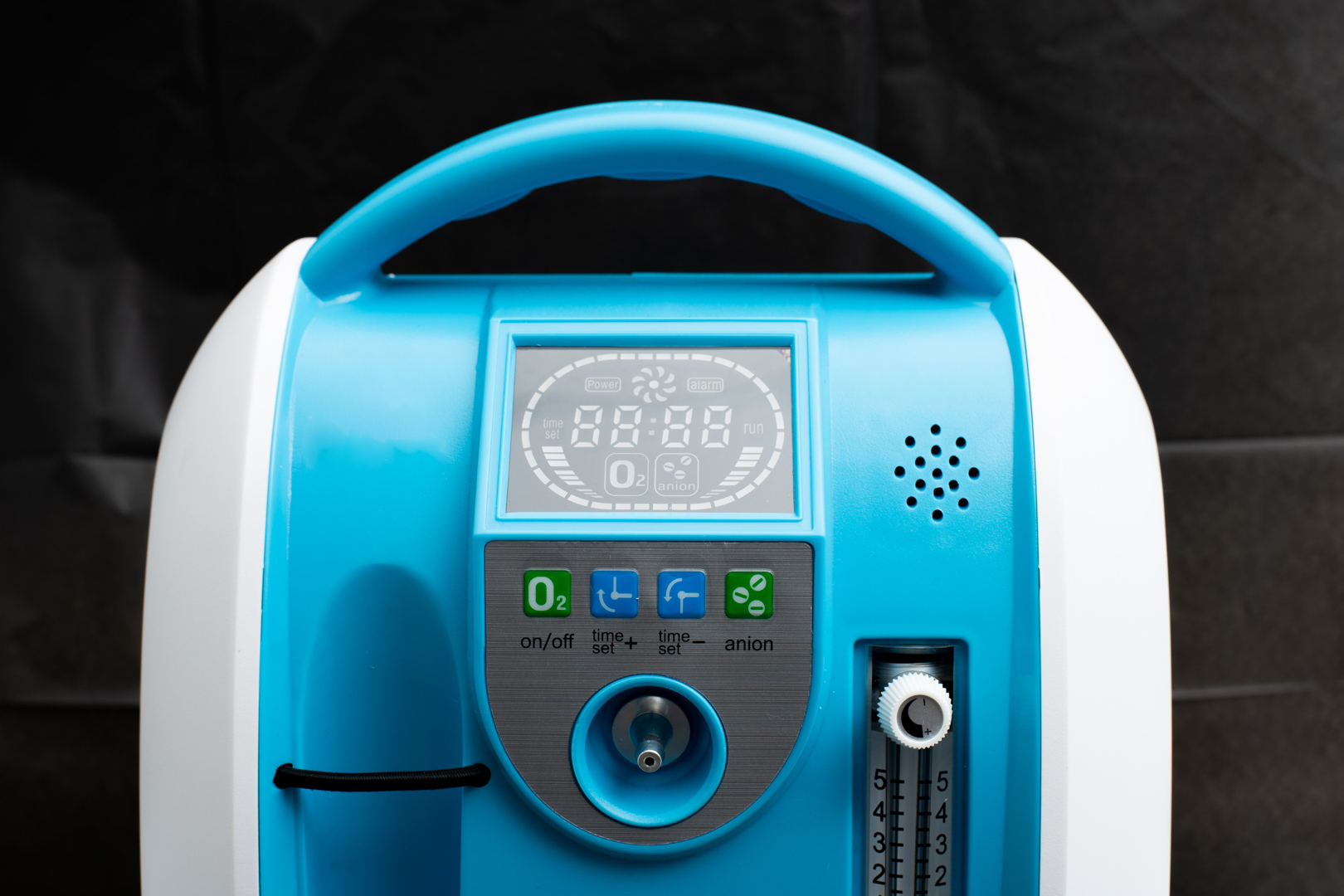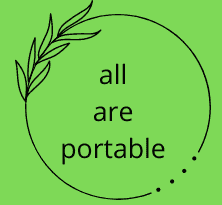Melvin is an expert for portable products.The site is for sharing everything about portable products for online buyers.
As you get older, it becomes more and more difficult to do the things that you used to take for granted. Walking up a flight of stairs or even going for a short walk can leave you out of breath and feeling exhausted. If your doctor has determined that you need supplemental oxygen to help you breathe better, Medicare will pay for a portable oxygen concentrator (POC).
If you have Medicare, you may be wondering if it will cover the cost of a portable oxygen concentrator. The answer is maybe. Medicare Part B covers Durable Medical Equipment (DME), which includes portable oxygen concentrators.
However, there are some conditions that must be met in order for Medicare to cover the cost of a portable oxygen concentrator. First, your doctor must determine that you need oxygen therapy and write a prescription for it. Second, the DME must be medically necessary for the treatment of your condition.
Third, the DME must be approved by Medicare. fourth, you must rent or purchase the DME from a supplier that participates in Medicare.
If you meet all of these conditions, then Medicare Part B will cover 80% of the cost of renting or purchasing a portable oxygen concentrator.
You will be responsible for the remaining 20%. If you have supplemental insurance, such as Medigap or Medicaid, they may cover some or all of your out-of-pocket costs.

Credit: medicareu.com
How Much Do Portable Oxygen Machines Cost?
If you’re considering purchasing a portable oxygen machine, you may be wondering how much it will cost. Portable oxygen machines vary in price depending on the features and brand, but typically range from $1,000 to $5,000.
Some factors that affect the cost of a portable oxygen machine include:
· The size and weight of the machine – smaller and lighter machines will typically be more expensive than larger ones.
· The battery life – machines with longer battery life will usually cost more.
· The warranty – some manufacturers offer longer warranties than others, which can impact the overall cost.
Here are some things to keep in mind when budgeting for a portable oxygen machine:
1. You may need to purchase additional accessories like batteries or carrying cases, which can add to the overall cost.
2. Some insurance plans may cover part or all of the costs associated with a portable oxygen machine.
Be sure to check with your insurance provider before making any purchase decisions.
3. You may be able to find used or refurbished machines at a lower cost than buying new.
Does Medicare Cover Portable Oxygen Batteries?
As many people age, they may start to experience issues with their breathing. One common problem is that the lungs can’t take in as much oxygen as they used to. This can be a real problem for people who live in areas where there isn’t a lot of oxygen in the air to begin with, or for people who have lung diseases like COPD.
One solution to this problem is portable oxygen tanks. These tanks can be filled with oxygen and then carried around with the person, so that they always have a supply of fresh, pure oxygen to breathe. But does Medicare cover portable oxygen batteries?
The answer is yes! Medicare will help cover the cost of renting or buying a portable oxygen tank if your doctor says that you need one. They will also help cover the cost of refilling the tank when necessary.
So if you think you might benefit from having a portable oxygen tank, talk to your doctor and see if it’s covered by Medicare!
How Do I Qualify for a Portable Oxygen Concentrator?
Portable oxygen concentrators (POCs) are medical devices that concentrate the oxygen in the air around you and provide you with a portable source of oxygen. POCs come in different sizes and shapes, and some can even be worn as a backpack or carried in a small case.
In order to qualify for a portable oxygen concentrator, your doctor will need to determine that you have a chronic lung condition that requires supplemental oxygen.
Once your doctor has made this determination, they will write you a prescription for a POC. Some insurance companies may require additional documentation from your doctor in order to cover the cost of the device.
There are many different types of POCs on the market, so it is important to work with your doctor or respiratory therapist to find the one that best meets your needs.
Some factors that will be considered include how often you need to use the device, how long you need to use it each time, and whether you plan to use it while sleeping.
What Qualifies a Patient for Oxygen?
When most people think of oxygen therapy, they envision a patient hooked up to a large tank of oxygen with tubing running from it to their nostrils. However, there are many different types and delivery methods of oxygen therapy, and not all patients who receive it are connected to tanks. So, what qualifies a patient for oxygen?
In general, a patient may be eligible for oxygen therapy if they have a condition that results in low blood oxygen levels. This can be caused by lung conditions such as COPD, asthma, or pneumonia, or by heart conditions such as congestive heart failure. A doctor will determine whether or not a patient’s blood oxygen levels are low enough to warrant treatment with supplemental oxygen.
There are several different ways that oxygen can be delivered to a patient. The most common method is via nasal cannula, which is a small tube that runs from an air tank or concentrator to the patient’s nostrils. Other methods include face masks and venturi masks.
Patients who require higher concentrations of oxygen may need to use an inhaler or nebulizer.
Oxygen therapy can be used on a short-term basis to treat acute episodes of low blood oxygen levels, or it can be used long-term for chronic conditions. The amount of time that a patient requires treatment will vary depending on the underlying condition.
Some patients may only needoxygen during times of physical activity, while others may need it 24 hours a day.
Understanding Medicare: FAQs on Supplemental Oxygen Medicare Coverage
How Much Does It Cost to Rent a Portable Oxygen Concentrator
If you need supplemental oxygen, you may be wondering how much it will cost to rent a portable oxygen concentrator (POC). POCs are a great option for those who need oxygen therapy on the go, and they can be rented from many medical equipment suppliers. Here’s what you need to know about renting a POC.
How Much Does It Cost to Rent a Portable Oxygen Concentrator?
The cost of renting a portable oxygen concentrator will vary depending on the supplier and the length of time that you need to use the device. Most suppliers charge by the day, week, or month.
For example, one supplier charges $25 per day, $175 per week, or $495 per month for their smallest POC rental unit. Another supplier charges $50-$75 per day or $250-$400 per week for their larger units.
What Is Included in the Cost of Renting a Portable Oxygen Concentrator?
In addition to the rental fee, some suppliers may also charge for shipping and handling, as well as insurance. Some suppliers offer package deals that include all of these costs in one price. Be sure to ask about all fees before making your final decision on which supplier to use.
What Should You Consider When Renting a Portable Oxygen Concentrator?
Medicare Oxygen Guidelines 2022
The Centers for Medicare & Medicaid Services (CMS) has released the proposed 2022 Medicare Oxygen Guidelines, which would make changes to oxygen use and portable oxygen equipment reimbursement. The proposed guidelines would:
-Require a face-to-face assessment by a physician or nurse practitioner within 6 months prior to initiating home oxygen therapy.
-Limit the duration of home oxygen therapy to 36 months unless there is evidence of continued need. -Require that patients be reassessed every 12 months to determine if they are still eligible for home oxygen therapy. -Impose new restrictions on portable oxygen equipment, including a limit of 2 units per patient and a requirement that the equipment be used for at least 4 hours per day in order for it to be covered by Medicare.
These proposed changes are intended to reduce costs and improve patient safety, but some worry that they could result in poorer health outcomes for patients who rely on oxygen therapy.
How Much Does Medicare Pay for Inogen
If you or a loved one are considering oxygen therapy, you may be wondering how much Medicare will cover. Original Medicare (Parts A and B) does not cover oxygen equipment or supplies. However, some private Medicare plans (Part C) and Medicare Supplement Insurance plans (Part D) may offer coverage for oxygen therapy.
Inogen is a leading provider of portable oxygen concentrators (POCs). POCs are small, lightweight devices that can provideoxygen therapy on the go. If you have a private insurance plan that covers Inogen products, your coverage will likely vary depending on the type of plan you have and your specific benefits.
Here we’ll take a look at some general information about Inogen and Medicare coverage for Inogen products. Keep in mind that this is just an overview – always check with your insurance provider to verify coverage before making any decisions about treatment or purchasing any equipment.
What is Inogen?
Inogen is a company that provides portable oxygen concentrators (POCs). POCs are small, lightweight devices that concentrate ambient air into pure oxygen to deliver therapeutic oxygen to patients who need it. Inogen offers several different models of POCs, as well as related accessories like batteries and carrying cases.
How Much Does Medicare Pay for Inogen?
As mentioned above, Original Medicare does not cover any type of oxygen equipment or supplies – this includes POCs from Inogen. However, some private insurance plans offer coverage for these types of products – so if you’re interested in using an Inogen POC, check with your insurer to see if they offer any coverage options.
Some insurers may require prior approval before they will cover the cost of an Inogen device, so be sure to ask about this as well.
Does Insurance Cover Portable Oxygen Concentrator
If you have insurance, there is a good chance that it will cover the cost of a portable oxygen concentrator. Most insurance companies will class this type of device as durable medical equipment, which is typically covered under most health plans.
Of course, it is always best to check with your specific insurer to see if they cover portable oxygen concentrators and what, if any, restrictions may be in place.
Some insurers may require that you use a specific type of portable oxygen concentrator or get prior approval before they will provide coverage.
If your insurer does not cover the cost of a portable oxygen concentrator, don’t despair. There are many ways to finance the purchase of one of these life-saving devices.
You can often find financing options through the manufacturer or retailer where you purchase the unit. And there are many charities and non-profit organizations that can help with the cost as well.
Conclusion
Original Post: https://www.medicarehealthplans.com/blog/does-medicare-pay-for-portable-oxygen/
If you have been diagnosed with COPD, emphysema, or another lung condition that requires oxygen therapy, you may be wondering if Medicare will help cover the cost of a portable oxygen concentrator (POC).
The good news is that Medicare does cover POCs as long as your doctor prescribes one for you and certifies that you need it.
Part B of Medicare covers 80% of the cost after you meet your deductible, and Part A may also help cover the cost if you are hospitalized.
In order to get coverage, your doctor will need to write a prescription for a POC and send it to a supplier who is approved by Medicare. You will then work with the supplier to choose the right POC for your needs and arrange for delivery.
Once you have the POC, you will use it as directed by your doctor and submit claims to Medicare for reimbursement.

Melvin is an expert for portable products.The site is for sharing everything about portable products for online buyers.

